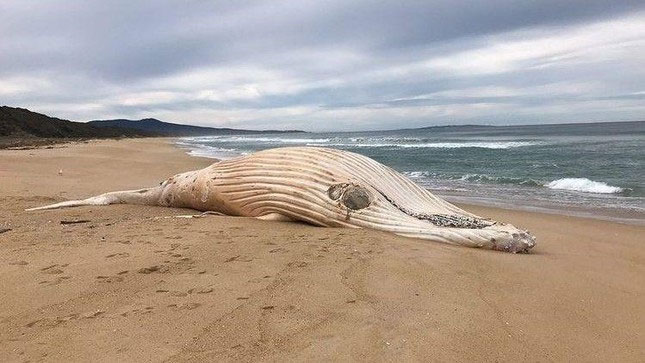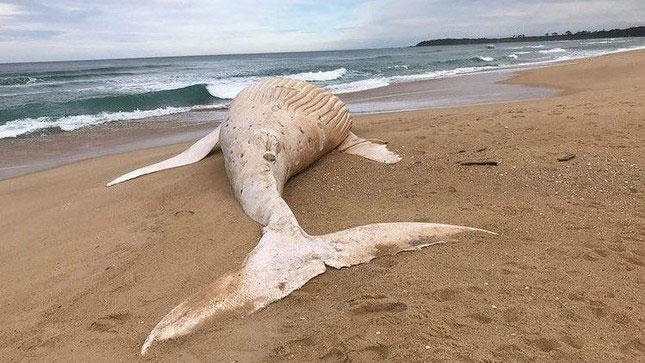A rare white humpback whale has recently died and washed up on a beach in Australia.
The unusual-colored carcass was discovered by local resident Peter Coles while he was kayaking near a remote beach close to Mallacoota, Victoria. The humpback whale measured about 10 meters in length and has been confirmed to be a juvenile female. Coles told Sky News: “It was pure white and had a marble-like appearance. I thought it looked like a sculpture.“

The dead humpback whale on the beach near Mallacoota, Australia.
Despite the whale’s pure white color, experts do not believe that it suffered from albinism. Observations of the whale revealed evidence of darker patches on its skin. Australian wildlife officials have sent tissue samples of the whale to the Victoria Museum for DNA analysis, which will help confirm the whale’s condition.
When the dead whale was discovered, some people speculated that it might be Migaloo, a famous albino male humpback whale first spotted in Queensland in 1991. Migaloo has not been seen for about two years, which raises concerns that it may have died. However, the size, gender, and lack of albinism in this whale have ruled out the possibility of it being Migaloo, providing some hope that Migaloo may still be alive.

Experts have yet to determine the cause of death for this extremely rare whale.
In April, another juvenile white humpback whale was spotted swimming with dolphins in New South Wales, and images showed that this individual also had white skin rather than being albino. However, there is no evidence to suggest that this whale is related to the one that washed ashore.
The exact reason for the whale’s death remains unclear, but it likely died a few days before washing up on the beach. Wally Franklin, a marine ecologist at Southern Cross University in Australia, stated that the most probable cause of death is a collision with a boat. Franklin said: “We cannot see the upper part of the body, and if it was struck by a boat, there could be scars and damage on the upper body.”
However, Franklin added that the whale could have also succumbed to disease or parasites.
The carcass of this humpback whale will be left on the beach to decompose naturally due to its remote location away from residential areas.


















































